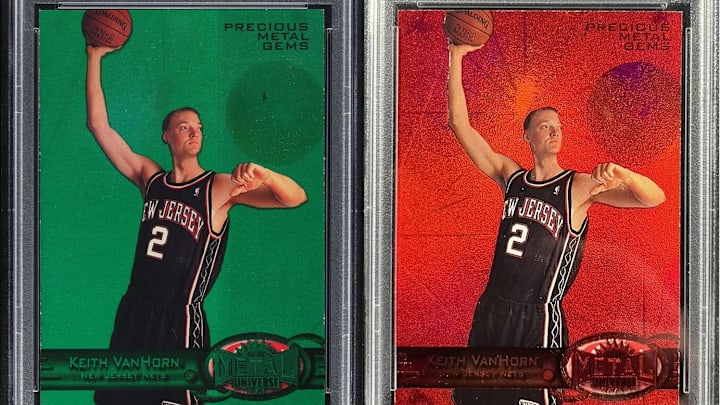The Secret to Card Collecting: Invest in the Set, Not the Player

It's happened to all of us. We've all tried to predict the next big superstar and failed miserably. The truth is, that's the approach that most take when targeting cards early for their long-term collections. Is this a mistake? It certainly can be. Let's discuss another approach that often yields better results.
There are 3 factors typically at play when determining a card's long-term growth: The market, player, and set. Historically speaking, 2 of those are needed to have success. For example, if the card is of the right player, and the right set, people will want it regardless of the card market. Similarly, if the market is doing well, and the card is solely of the right set, or of the right player, it should still do well.
The market is arguably the toughest to predict out of the 3, leaving us with the choice to predict the player or the set. Rationally speaking, predicting the next iconic set over the next superstar who may or may not pan out, and who has hype and expectation built into his/her prices, is often the better play.
Tracy McGrady turned out to be a great player from the 1997 draft, while most would agree that Keith Van Horn underperformed. Although Tracey McGrady's rookie Topps Chrome refractor in a PSA 10 sold for $2,400 in March of this year, the below Keith Van Horn card sold around the same time for $9,600.

Why you might ask? The 1997 Metal Universe Precious Metal Gems went on to become one of the most iconic sets of all time, while the 1997 Topps Chrome refractors are solid cards, but that's just it: they're solid cards.
Now for enjoyment purposes, this doesn't compare. It's obviously more exciting rooting for a young rookie, than for a card set to continue gaining popularity. That's why it's important to collect what you like; but if you're in it for strictly dollars it can't hurt to take this approach in consideration.

Jason is a dedicated basketball card collector who recently transitioned into writing and educating others about the sports card industry. Find him on Instagram @jeancardz